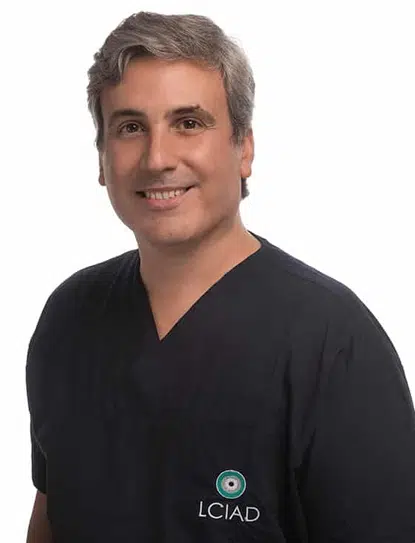“Have a seat, we will take care of you.”
An Introduction to Informed Consent in Dentistry
Rather than a reassuring moment, taking a seat on a dental chair can be stressful for some people. It can be associated with past bad experiences when you are not at your most receptive to important information. However, it is also the moment where your clinician explains, in laymans terms, what has happened, ishappening and may happen in the future. From there you can decide clearly what is necessary to solve or prevent problems.
A consultation is a meeting where both sides get to know each other (first impressions last) and exchange information. The patient wishes to explain their issues. The clinician needs to listen carefully and collect information – verbal, subliminal or implied, body language, and unspoken information as well as clinical, x-ray, photographic, and video information, all in the time allocated. Experienced clinicians know how to do this well.
LCIAD’s Approach to Clinical Data Collection
At LCIAD, we believe that the accurate collection of clinical data starts at the first point of contact and continues throughout the first consultation period. However, it is the time we spend on this information collection, how we document and collate it, and how we study it after the patient has left the practice, that forms the basis of successful care and treatment at LCIAD.
Our ability to look holistically in your presence and, just as importantly, after you leave when we have thinking time in your absence, ensures that no rock is left unturned. Decisions are made based on knowledge and collected facts rather than suppositions based on limited data. This brings consistent, reliable outcomes that our patients have benefited from over the years and continuously educates the clinical team and upskills everyone, every day, over time.

The Importance of Knowledge in Dental Care
The patient is then truly empowered to decide the best way forward for them with all the information available and can truly provide “informed consent” to any proposed treatment with a full report of the identified condition, its likely evolution, and what systematic steps can be taken to achieve and consistently maintain all aspects of oral and general health.
We have a standardised way of communicating between members of the team and the patient and this paves the way to a well-structured plan of action. It is not a coincidence that our practice was chosen to provide the “ideal” new patient treatment planning journey for educational purposes for the largest education dental portal in the UK (Dentinal Tubules 8 Part New Patient Consultation and treatment planning series 2021).
We require knowledge for all other aspects of life: buying a house, the specs of a car, the kids’ school and university, the learning of a new skill, the machinery available at the gym and how to use it effectively and safely. Knowledge is power and the knowledge used to decipher the information that you provide us and the clinical data that we collect as a standard for every single patient that we accept at LCIAD really does make a long-term difference to the outcome of your treatment and long-term care. We have 20 years or more of information and patients that have remained with us to corroborate this.
Understanding the importance of informed consent and the role of knowledge in dental care is crucial. At LCIAD, we are committed to empowering our patients tby communicating comprehensive information.
Welcome to LCIAD.
Frequently Asked Questions (FAQ’s)
Q: Why is informed consent important in dentistry?
Informed consent is crucial in dentistry. We ensure that patients are fully aware of their dental condition and treatment options. We need to tell you what will happen if you do nothing. Some patients are simply not aware of what is happening in their mouths. Sometimes discovering issues that you were unaware of can be daunting. However it is only after having been infomed of the problem that you are able to decide on how best to proceed with adressing it.
Q: How does LCIAD collect and use clinical date?
The collection of clinical data at LCIAD begins at the first point of contact and continues throughout the consultation. This data is then meticulously studied to form the basis of effective long term prevention, care and treatment.
Q: What LCIAD’s approach to patient communication unique?
Our clinicans spend more time than anyone we know to analyse your data and provide a comprehensive report for your information. Every report is custom written in our own time outside practice hours. We care that you know!
Q: How does knowledge empower dental care?
Knowledge empowers patients by giving them the information they need to make informed decisions about their dental treatment and most importantly, long term care and dental health for thier peace of mind.


